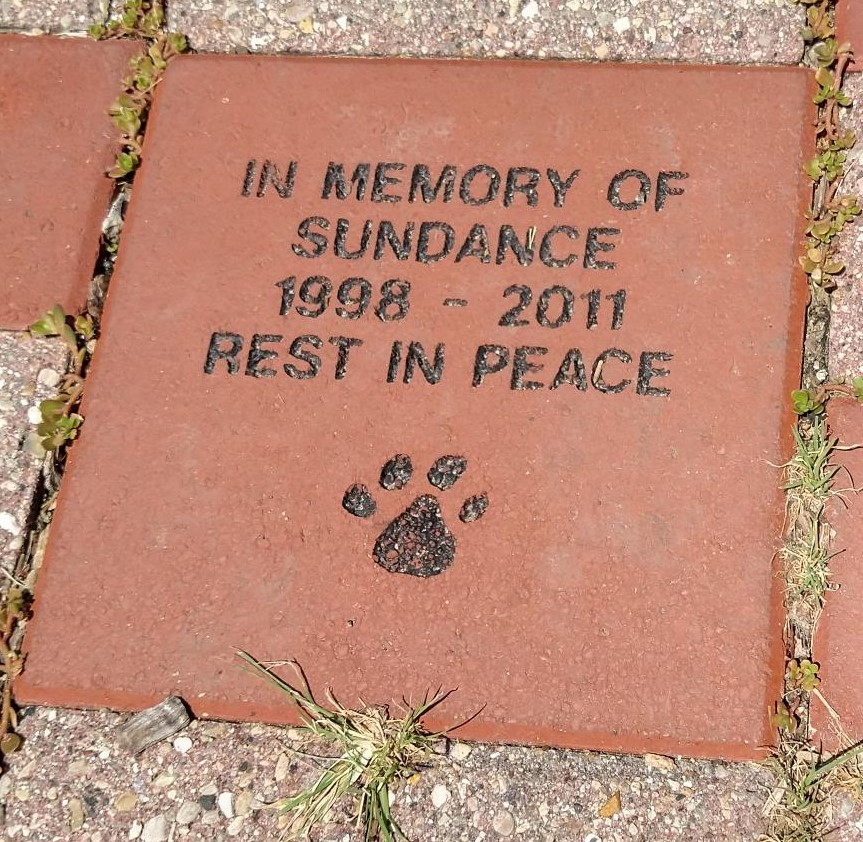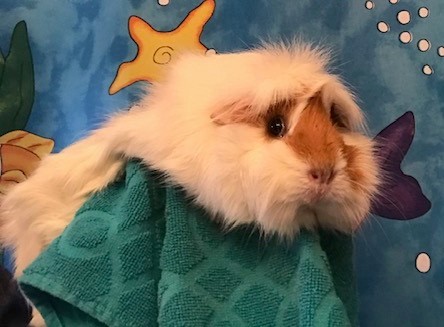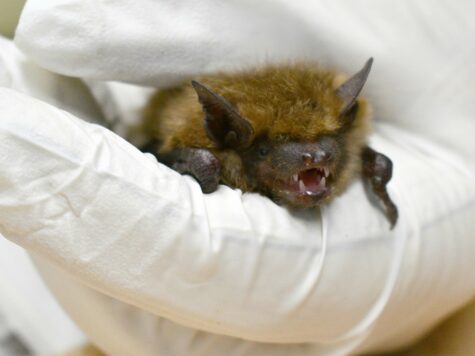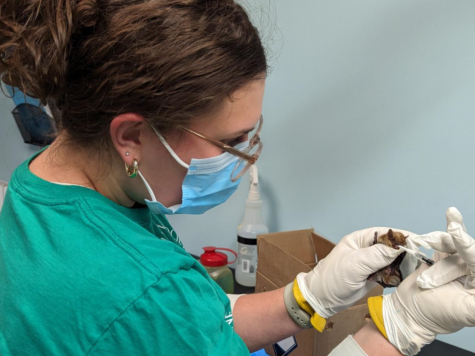It’s never easy saying good-bye to a pet. They did more than live in our home and eat our food. We danced around them in the kitchen – sometimes even tripped over them -- as they sniffed around for dropped tidbits. We snuggled with them on the sofa or in bed. They were first at the door to greet you when you returned home. But when they’re gone, there’s no tail-wagging butt to greet you at the door, no more pitter-patter of their pawprints on the floors. We’re left with the memories of our cherished pet and the love they showered upon us.
Whether the pet died naturally or was humanely euthanized, there’s no denying the emotions felt by everyone longing for more time with their faithful friend.
Dane County Humane Society (DCHS) reached out to Pet Loss Resource Center (PLRC) in Madison and Journeys Home Pet Euthanasia LLC, a mobile veterinary service for Madison and surrounding communities, to discuss what emotions families with pets may experience when faced with their pet’s declining health and loss, and to offer tips to help with those emotions.
Sadness is the most expected emotional reaction, but the intensity can be surprising, according to Linda Colletti, PLRC Pet Loss Grief Specialist and retired hospice grief counselor.
“Other emotions arise as well. Some emotions can feel quite frightening and even crazy in the way they pop up without warning,” says Colletti. “Some are triggered by certain memories, or there may be no trigger at all.”
Other emotions may include worry or fear that other pets or humans will die or leave; anger at care providers, ourselves, and even our pet for leaving; jealousy at seeing others with their pets and wanting our pet back; gratitude for those who supported us and our pet; regret and going through the “woulda, coulda, shoulda’s ,” like we should have spent more time with our furry family member or if we had only taken them to the vet sooner they would have been fine; and relief, especially with a pet that has been sick long-term, that the daunting demands and the pet’s pain or discomfort are now over.
Relief is often followed by guilt, according to Colletti. In fact, guilt and denial are the two most commonly felt emotions when a pet is entering end of life or has passed away, according to Drs. Katie Hilst and Linda Purdy, veterinarians at Journeys Home Pet Euthanasia.

Denial is the first stage of grief identified by Swiss-American psychiatrist Dr. Elizabeth Kubler-Ross in 1969, according to Hilst. Kubler-Ross pioneered the concept of providing psychological counseling to people who were dying.
“It (Denial) is our mind’s way of taking time to absorb and get used to the impending loss,” says Hilst, founder of Journeys Home Pet Euthanasia. “A pet parent’s denial starts when we first learn our pet has a terminal illness or has unexpectedly passed.”
Colletti says, “Denial can serve a useful function. It is our mind protecting our hearts from too much pain. It is okay to compartmentalize our grief, put it on the shelf for a while, to get through the pain.”
But, for some, denial could become problematic. “Denial can be a problem if we let it get in the way of treating our pets and making good decisions about their end-of-life-care,” Hilst says. “We need to accept the reality of their illness to move forward in their treatment and care decisions.”
Colletti adds that denial become an issue when “we do not recognize the reality of the pet’s death or set grief aside for long periods of time. Jumping into the abyss of emotions can be too frightening. We try to avoid it. Unfortunately, we can’t go around the grief to avoid it. The only way to heal is to go through the center of grief and experience the emotions.”
Some may consider getting a new pet to help ease their pain, while others may consider that a betrayal of the pet they lost. All parties agree that the decision when to get a new pet is very individual – some may want one immediately, others may wait a few months or years, and some may never get another pet.
No matter the decision, they all suggest that the pet family still needs time to grieve the loss of their pet before moving on to the next one. Some pet families may think getting the same breed and color can replace their lost pet. But experts say this rarely works because the new pet will still have different behaviors and personality.

Tips to Cope with Emotions
Grief is a normal, natural reaction to a loss. “Most grief can be worked through by talking with others who understand, expressing emotions, and memorializing. In time the intensity of the grief diminishes. We learn in time to build a new relationship with our pet, one of memory,” says Colletti.
Purdy suggests connecting with a support system of friends, family, mental health professionals, or a combination. “Have a safe place you can discuss your fears and worries so that they aren’t able to grow out of proportion,” she says.
Families should reach out to their support system if they are experiencing extreme emotions, intrusive repetitive thoughts, or a lack of being able to participate in normal work and personal activities, according to Purdy.
“Guilt and anger can often hang us up,” says Colletti. “Anger and guilt are two emotions that can be destructive not only to our psyche but also to our physical being. If this is the case, additional support with a licensed therapist could be beneficial.”
Colletti offers some tips to cope with our emotions:
Allow the feelings: Don’t judge your feelings, allow yourself to express them. “This is your own unique journey. There is no right or wrong way,” she says.
Talk to others: Speak with others who understand what it’s like to lose a pet or join a support group. PLRC offers two to three free grief support groups per month – two Zoom meetings and one in-person at Pinney Branch Library. Each are facilitated by a grief specialist. To learn more or view additional individual support, click here.
Journal/Art/Create: Write a story or poem about your pet, draw pictures, make music about them. “Creating art of any kind can help us express our feelings and help us make sense of them,” Colletti says.
Memorialize: Hold a memorial complete with memorabilia, pictures to look at, or videos to watch, and light candles. Colletti also suggests attending special programs that honor pets who have died, or walking their favorite path. “Whatever feels right. It’s about remembering and honoring that special bond,” she adds.
Help others: Listen to other pet parents share their stories, walk a neighbor’s dog, foster a pet, or volunteer at a humane society or rescue.
List of diversions: Make a list of things you like to do, like go for a walk, call a friend, ride your bike, meditate. “Put the list on your refrigerator door and when you are feeling overwhelmed, pick one diversion to do,” suggests Colletti. “We cannot grieve 24/7; we need breaks that can recharge us.”
Choose: Make an active choice to “recall the entire movie of their lives, not just the ending,” says Colletti. “Grieve in your own way and your own time. Lean into the pain but allow yourself moments of denial, respite, and even joy. Embrace mystical ‘“signs’” along the way as a gift.”
Be gentle with yourself: “Grief is hard work. It can zap you of energy. It is important to take care of yourself, emotionally, physically, and spiritually,” Colletti adds. That may mean taking time off from work. Some employers allow using sick time to mourn a furry family member, and some businesses offer pet bereavement leave.
Colletti also wants to remind pet families experiencing end-of-life of their beloved friend or who’ve already had to say good-bye: “Know you will survive. The day will come when the softness of sweet memories will bring warm smiles of memory.
“The paradox of loving a pet companion is we hurt because we loved,” she says. But Colletti asks people to consider this question: Would you prefer to avoid the pain rather than have had your beloved pet in your life? “The answer to this question can bring some acceptance,” she says. “It was worth it.”






